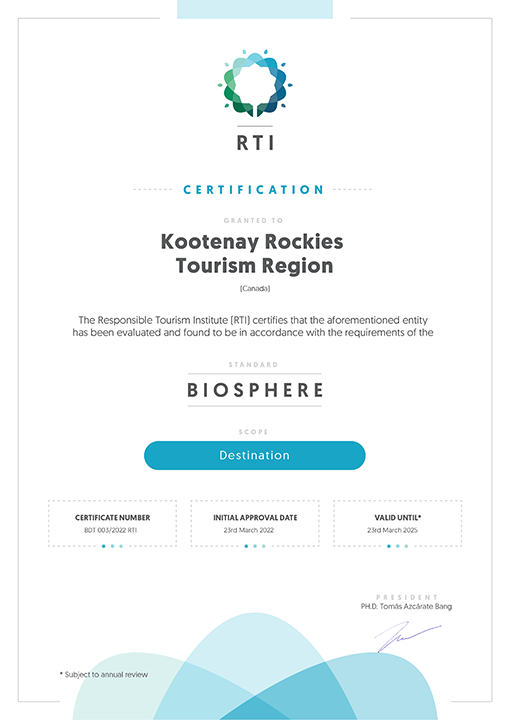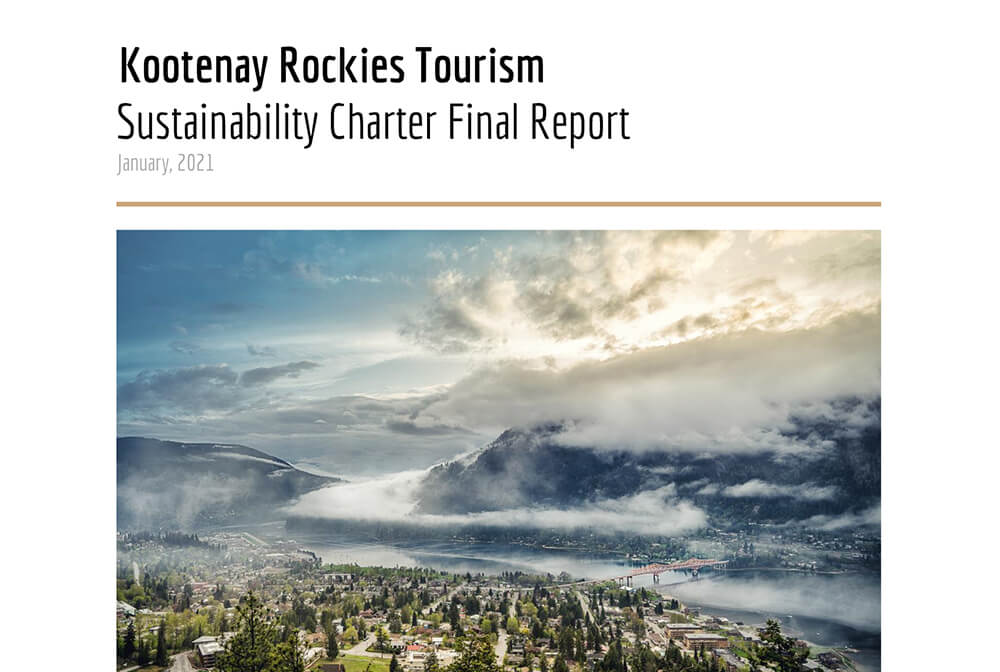Destinations adhering to sustainability principles contribute to a long-term balance between economic, social cultural and environmental dimensions of the geographic areas
in which they operate.
Third-party independent certifications, in alignment with the Global Sustainable Tourism Council (GSTC) destination criteria and the UN World Tourism Organization vision and principles, ensure destinations are held accountable for, actively planning, implementing initiatives and measuring their progresses towards a globally shared vision for sustainable tourism.
BIOSPHERE TOURISM
Biosphere is a Sustainable Tourism System certified by the Responsible Tourism Institute, an international certification body that maintains a Memorandum of Understanding with UNESCO, is affiliated to the World Tourism Organization and is a member of the Global Sustainable Tourism Council. The system is aligned with the United Nations 17 Sustainable Development Goals and the Paris COP21 Accord to Fight Climate Change.
The Biosphere Commitment Program allows tourism industry stakeholders within the Kootenay Rockies region to be recognized and involved through the Biosphere Certification. The Commitment Program follows a simple process in order to be recognized as a Biosphere Committed Company.
To commemorate World Earth Day, April 22 2021, the Kootenay Rockies Tourism Association (KRTA) formally committed to a new path forward to support future planning and a more sustainable visitor economy as we work towards the post-COVID-19 tourism economy. KRTA was joined by the other regional destination management organizations in the province who operate under the umbrella of the BC Regional Tourism Secretariat (BCRTS).
Signing of the Biosphere Letter of Commitment solidifies a long-term commitment to achieving the internationally recognized Responsible Tourism Institute’s Biosphere Certification.
Read 2022 Biosphere Certification Announcement
Watch Biosphere Announcement
and Officials from world-leading sustainable organizations
Read Provincial Press Release – April 2021
Watch Biosphere Announcement – Apr 2021
KRTA on Biosphere Sustainable.com
On March 22, 2022,
Kootenay Rockies Tourism Association was officially certified
as a Biosphere Certified Destination.
GreenStep Sustainable Tourism

The certification is comprised of 117 questions and several hundred indicators that Kootenay Rockies Tourism completed and were reviewed together with a GreenStep assessor.
The Kootenay Rockies Tourism (KRT) region is the first destination to be certified by GreenStep Sustainable Tourism (2022), the first and only Canadian-based provider of tourism industry certifications for both tourism businesses and destinations.
KRT was recently re-certified for the 2025-2028 time period.
GreenStep’s Sustainable Tourism Destination standard has achieved formal recognition by the Global Sustainable Tourism Council (GSTC). Prior to recognition, the certification standard went through a rigorous, 18-month long review and revision process to align with the GSTC Criteria for Destinations, United Nations World Tourism Organization’s Indicators of Sustainable Development for Tourism Destinations and the UN Sustainable Development Goals (SDG’s), following global best practices for sustainable tourism destination management.
Upon completion of a formal evidence review, KRT achieved a Sustainable Tourism Silver Certified Destination.
REGIONAL SUSTAINABILITY CHARTER
Kootenay Rockies Tourism, following the strategic directions laid out in the 10-year Destination Development Strategy, is developing a sustainability charter in alignment with international standards* and metrics for destination sustainability.
The charter includes a final set of 34 sustainability indicators which will be used to periodically measure and monitor various aspects of destination sustainability, such as the economic contribution of tourism, employment, number of protected natural areas, resident’s satisfaction, seasonality, cultural preservation, water and energy consumption, waste management and greenhouse gas emissions.
A progress report on the Kootenay Rockies Destination Sustainability journey, including the 3-year action plan for the destination can be viewed here.

